
Willi Forst, born Wilhelm Anton Frohs was an Austrian actor, screenwriter, film director, film producer and singer. As a debonair actor he was a darling of the German-speaking film audiences, as a director, one of the most significant makers of the Viennese period musical melodramas and comedies of the 1930s known as Wiener Filme. From the mid-1930s he also recorded many records, largely of sentimental Viennese songs, for the Odeon Records label owned by Carl Lindström AG.
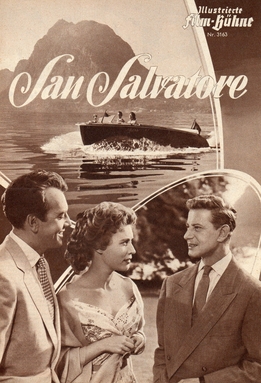
San Salvatore is a 1956 West German drama film directed by Werner Jacobs and starring Dieter Borsche, Antje Weisgerber and Will Quadflieg.

Between Yesterday and Tomorrow is a 1947 German drama film directed by Harald Braun and starring Hildegard Knef, Winnie Markus and Sybille Schmitz.

A Student's Song of Heidelberg is a 1930 German musical film directed by Karl Hartl and starring Hans Brausewetter, Betty Bird and Willi Forst. It marked Hartl's directoral debut. The film is in the tradition of the nostalgic Old Heidelberg.

A Tango for You is a 1930 German musical film directed by Géza von Bolváry and starring Willi Forst, Fee Malten, and Paul Otto.
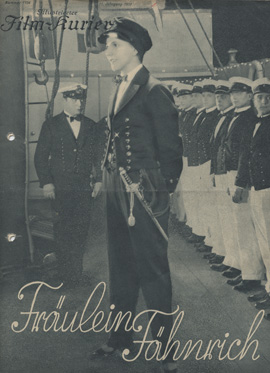
Miss Midshipman is a 1929 German silent comedy film directed by Fred Sauer and starring Mary Parker, Willi Forst and Fritz Schulz. The film's sets were designed by the art director August Rinaldi.
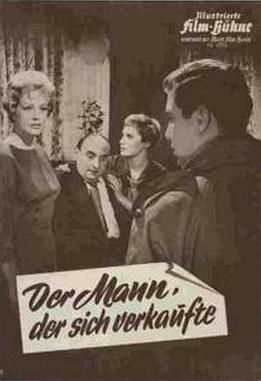
The Man Who Sold Himself is a 1959 West German crime film directed by Josef von Báky and starring Hildegard Knef, Hansjörg Felmy and Antje Weisgerber.

So Ended a Great Love is a 1934 German historical romance film directed by Karl Hartl and starring Paula Wessely, Willi Forst and Gustaf Gründgens.

Third from the Right is a 1950 West German musical crime film directed by Géza von Cziffra and starring Vera Molnar, Robert Lindner and Peter van Eyck. It was made by the Hamburg-based company Real Film at the Wandsbek Studios. The film's sets were designed by the art director Herbert Kirchhoff.
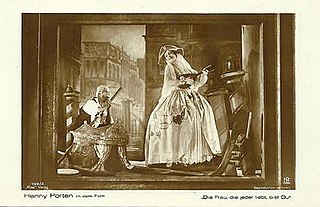
The Woman Everyone Loves Is You is a 1929 German silent film directed by Carl Froelich and starring Henny Porten, Fritz Kampers and Paul Hörbiger.

German Wine is a 1929 German silent film directed by Carl Froelich and starring Livio Pavanelli, Henny Porten and Paul Henckels. It takes its German title from the sweet white wine Liebfraumilch.

Illusion in a Minor Key is a 1952 West German drama film directed by Rudolf Jugert and starring Hildegard Knef, Sybille Schmitz and Hardy Krüger. It was made at the Bavaria Studios in Munich. It was one of the last films produced by the veteran Erich Pommer who had returned to Germany from exile after the Second World War. The film's sets were designed by Ludwig Reiber. It is sometimes included on lists of film noirs.

Scandal at the Girls' School is a 1953 West German comedy film directed by Erich Kobler and starring Walter Giller, Günther Lüders and Joachim Brennecke.
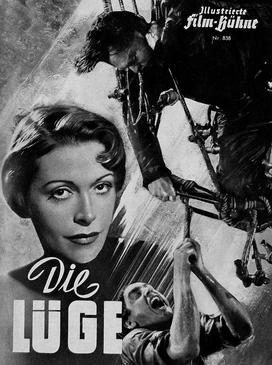
The Lie is a 1950 West German crime film directed by Gustav Fröhlich and starring Otto Gebühr, Sybille Schmitz and Cornell Borchers. It was shot at the Bendestorf Studios. Location shooting took place around Hamburg and Westerland. The film's sets were designed by the art director Franz Schroedter.

Abundance of Life is a 1950 West German romantic comedy film directed by Wolfgang Liebeneiner and starring Erika Müller, Ingeborg Körner, and Gunnar Möller. It was one of the last of the Rubble films made in the immediate post-war years. It updates a story by Ludwig Tieck to modern-day Hamburg, addressing the shortage of housing in the heavily bombed city.

The Road to Paradise is a 1956 French-German romantic comedy film directed by Willi Forst and Hans Wolff and starring Georges Guétary, Christine Carère and Claude Farell. The film is the French version of the 1955 German film The Three from the Filling Station, which was itself a remake of a 1930 film.

Dreaming is a 1944 German historical musical drama film directed by Harald Braun and starring Hilde Krahl, Mathias Wieman and Friedrich Kayssler. It portrays the lives of the pianist Clara Schumann and her composer husband Robert Schumann.

The Noltenius Brothers is a 1945 German drama film directed by Gerhard Lamprecht and starring Willy Birgel, Karl Mathias and Hilde Weissner. Released in Berlin on 7 April, it was, by most accounts, the last of the twelve films released in Nazi Germany in 1945, before capitulation on 7 May.

Capers is a 1937 German comedy film directed by and starring Gustaf Gründgens and also featuring Marianne Hoppe, Fita Benkhoff and Volker von Collande. It was shot at the Johannisthal Studios in Berlin. The film's sets were designed by the art directors Kurt Herlth and Werner Schlichting. It was produced and released by Terra Film while international distribution was handled by Tobis Film.
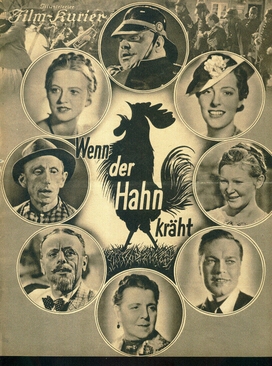
When the Cock Crows is a 1936 German comedy film directed by Carl Froelich and starring Heinrich George, Hans Brausewetter and Marianne Hoppe. It was shot at the National Studios in Berlin. The film's sets were designed by the art directors Walter Haag and Franz Schroedter. It is based on a folk play of the same title by August Hinrichs.




















